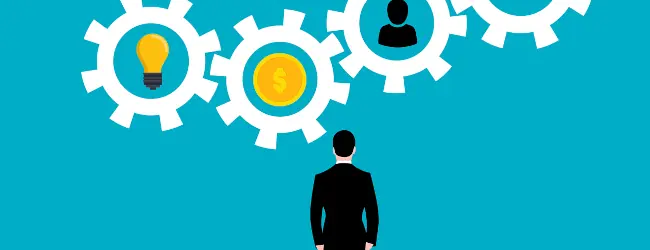In the previous article (this article), I explained why we don’t need to make our customers emotional, including making them pleased. That is a rational way to build our own businesses.
That concept was one factor that relaxed me and made it easier to handle business. Let’s discuss it more deeply.
How to price our products confidently
Sometimes, we want to price our products confidently to build our businesses.
A typical factor that makes us hesitate is our empathy. Our emotions tell us that it is better if the customers are pleased. That urges us to price our products as low as possible. It means we sacrifice our profit.

That prevents us from earning enough money and building our business.
One solution is to consider business as a people’s rational activity. It tells us why we don’t have to please customers. This awareness might free you from the anxiety of having to please others and the difficulty of making a profit.
Why we cannot please others in business
If you are logical and want to build your business, try treating it as a people’s rational activity. In other words, you don’t have to make our customers emotional, including making them pleased.
Exchanging, which is the basis of business, is a creative action. Each one tries to become abundant by exchanging things according to their rationality.
That tells us that the customers’ rational judgment pleases them, not our products.

For example, someone had the problem of having to carry many small items. In such a situation, he found one of our products—an affordable handbag. Buying it and using it solved his problem. He was delighted.
His successful creativity brought him joy, not our products. He guessed that he could be efficient by adopting one of our works, bought it, and his hypothesis was proven correct. He is pleased with his creativity. It was not our product that directly delighted him.
In other words, we cannot directly make people happy in exchange. Customers’ pleasure depends on their rationality. It tells us that it is pointless to try to make customers happy in business. We cannot be held responsible for the outcome of their hypothesis. We can offer them only individual items that provide reasonable solutions.
A farmer’s example
That awareness enables us to price our products reasonably according to the market value.
To make it easier to understand, let’s look at an example of a farmer who failed to price reasonably.
There was a farmer who was empathic but less logical. Since he wanted to make others glad, he started distributing his defective produce for free. He believed that providing things for free would eliminate poverty from the world.

However, his thinking didn’t align with reality. Naturally, his free vegetables quickly became popular in the town. Many people rushed to his farm. The free vegetables ran out quickly. Some greedy people took all the vegetables for themselves and sold them for profit. Some people were not able to obtain free defective produce. Some of them got angry. They thought the farmer was lying because there were no free vegetables. They even started taking vegetables that were not free.
The farmer was also angered at those greedy people. He started to fight them.
Although he initially intended to make people happy, he eventually became consumed by hatred.
Knowing about the free market
A rational perspective shows us why he was wrong. He should have distinguished between charity and business.
In the free market, people make judgments based on their rationality. If someone can obtain free vegetables, it is natural to try to distribute more of that. If he can earn money from them, he can become wealthier. He looked for places where he could sell, took on the risk, paid for transportation, and used various strategies to make sales. It is creative. He was delighted, even if he was greedy.
In other words, the farmer gave charity to the reseller. Since he neglected to choose to whom to hand his defective produce, the most creative person utilized it the most.

From an overall perspective, the amount that has made society more efficient doesn’t change. Even if the farmer distributed his crops for free, someone who received them would price and sell them as long as they were released into the free market. It is a rational activity.
That is the nature of the free market. People seek effective materials, take risks, incur costs, show their creativity, and distribute them as a new product. We need to separate rational activities from emotional ones.
Distinguishing between charity and business prevents the farmer’s mistake. When we release our products in the free market, we need to price them reasonably. Otherwise, other creative people will profit instead of us.
Conclusion
That is why we need to consider business as a people’s rational activity.
Exchanging, which is the basis of business, is a creative action. Each one tries to become abundant by exchanging things according to their rationality.
This awareness might free you from the anxiety of having to please others and the difficulty of pricing.
Thank you for reading this article. I hope to see you in the next one.


